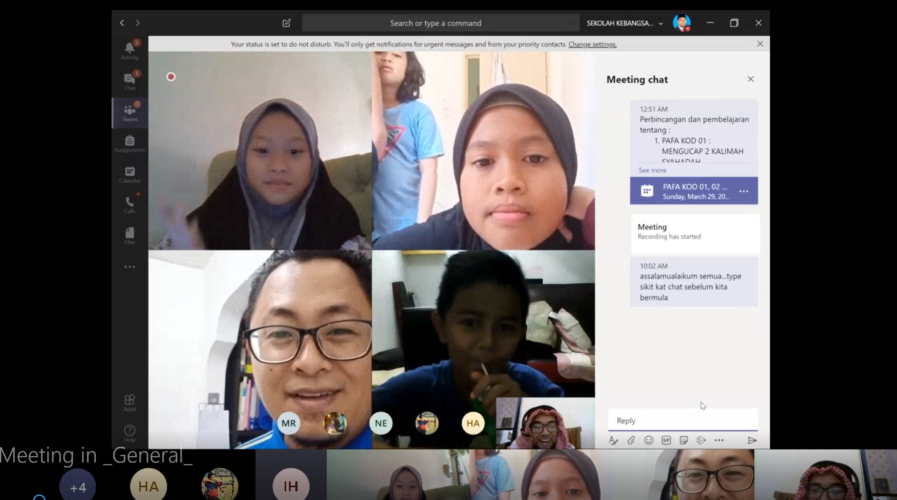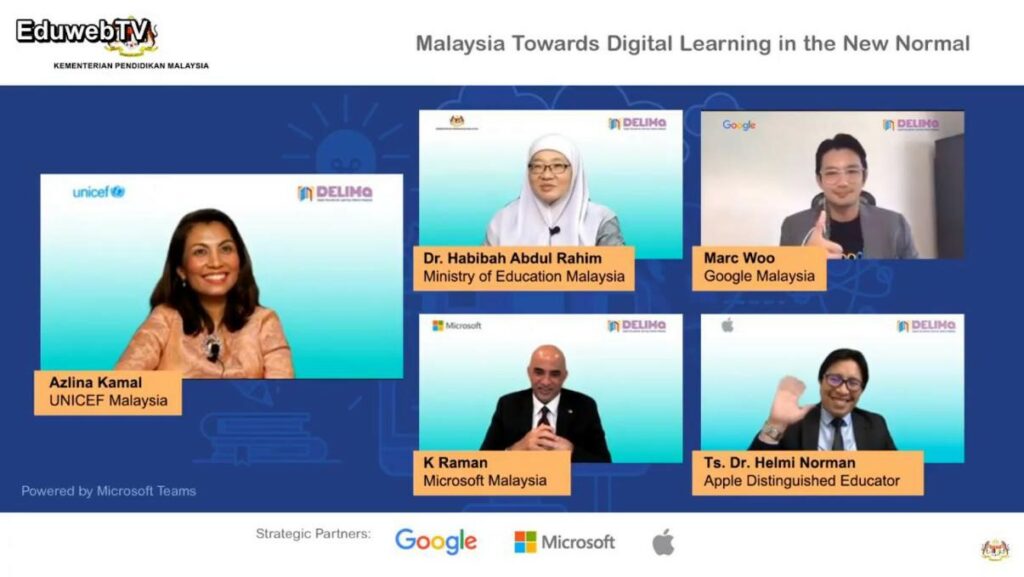
Young learners in Malaysia using Microsoft Teams. Source: Microsoft Malaysia
Microsoft Malaysia – every student has a chance with the right tech
- Microsoft Malaysia joins hands with Google, Apple to bring a nationwide education platform during a time of crisis in the country
An estimated 40% of the world’s poorest countries failed to support learners at risk during the COVID-19 crisis. UNESCO forecasts that 23.8 million additional children and youth (from pre-primary to tertiary) may drop out, or not have access, to school next year due to the pandemic’s economic impact alone.
Ensuring learning continuity during the time of school closures and academic course suspensions thus became a priority for governments the world over, many of which turned to technology for a solution. 2020 marked the largest ever shift towards new learning tools and outcomes outside of the classroom.
Around Southeast Asian countries, levels of education development can vary greatly, but connectivity is always a challenge for most of these countries. Fortunately in several of these territories, technology partners have stepped in to lend technological support to beleaguered education systems, often at the national level, which provides the greatest chance to reach as many students as possible.
In Malaysia, the biggest technology companies in the world – Google, Apple, and Microsoft Malaysia –all banded together to provide educational technology (edtech) tools to the digital learning platform known as “DELIMa” (Digital Education Learning Initiative Malaysia) that was relaunched earlier this year by the Malaysian Ministry of Education (MOE), as the pandemic caused nationwide school closures.
One of DELIMa’s grounding tenets is platform democratization, harnessing a multi-technology ecosystem to make digital learning accessible to all. Which is why edtech resources from Google Classroom, Microsoft 365, and Apple Teacher Learning Centre are all featured on DELIMa.

Virtual launch of the DELIMa national education platform. Source: Microsoft Malaysia
“Every student has the opportunity, regardless of economic status – by having the right device, the right connectivity, and the right platform – every student should be given and must be given the opportunity to have access to this technology,” insists Microsoft Malaysia’s managing director, K. Raman.
In the name of democratizing edtech for as many as possible, Microsoft Malaysia allowed its Microsoft 365 suite to be available on a Google-hosted platform. “The work we are doing with the MOE is to democratize technology, regardless of what technology and give the students the choice. Whether it is our platform, whether it’s our competitor’s platform – in this case, Google Classroom – our students must have access to all different technology.”
DELIMa was averaging about 1.7 million monthly active users, making it one of the largest nationwide deployments of an e-learning platform in the world. “DELIMa is a great initiative by the Malaysian government in that it offers a platform that is free for students,” said Raman. “We are working with MOE by ensuring every student and every educator can have access to our Microsoft Teams, which is our collaboration platform, our Word, our PowerPoint, and our Excel for free and without restriction.”
Students are limited from learning in physical classrooms right now, but in some ways, learning platforms like DELIMa have freed up students to learn at their own pace. “In terms of the digital classrooms, I would say, it gives an opportunity that learning never stops. So now with a digital platform, students can learn anytime, anywhere.”
Microsoft has been empowering other learning platforms as well, both in Malaysia and elsewhere, such as aiding universities with their research-intensive work remotely. “With remote learning you need the right platform that can scale when students are accessing the information. And that’s the area that we’re working with University Malaya,” Raman pointed out.
“With high performance computing, they have moved from their traditional on-premise hardware platform into the Microsoft Azure [cloud]. And this is the ability to help them with a faster turnaround time, for all the huge data that they have in their research work.”
READ MORE
- Ethical AI: The renewed importance of safeguarding data and customer privacy in Generative AI applications
- How Japan balances AI-driven opportunities with cybersecurity needs
- Deploying SASE: Benchmarking your approach
- Insurance everywhere all at once: the digital transformation of the APAC insurance industry
- Google parent Alphabet eyes HubSpot: A potential acquisition shaping the future of CRM


